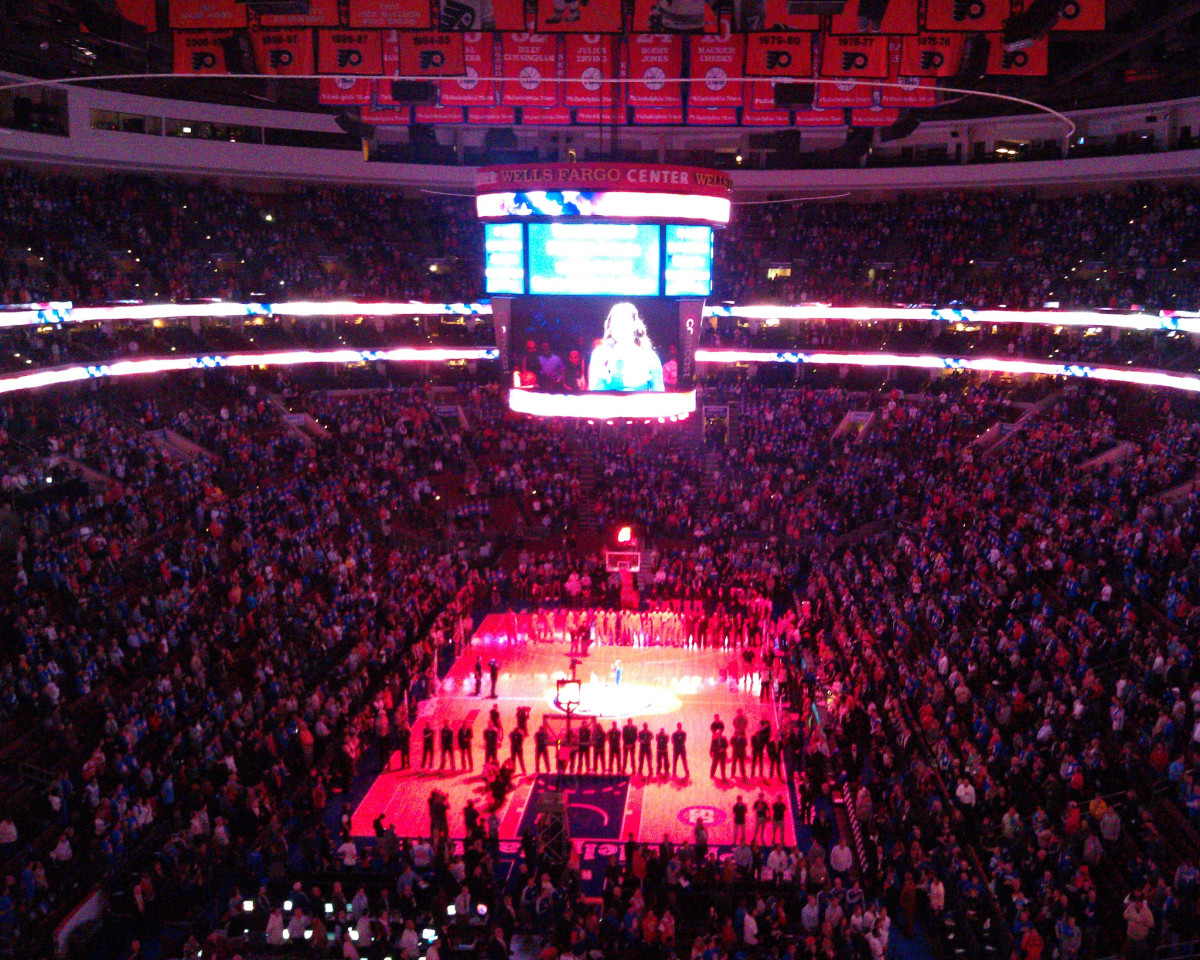Since early this year, the Chamber of Commerce for Greater Philadelphia has had its eyes on post-pandemic economic recovery.
“The most important thing we can do … is get the vaccine in your arm,” Patrick Harker, president of the Federal Reserve Bank of Philadelphia, said plainly in a January meeting about looking forward. “It wont make any difference to our economy if it sits in a vial.”
And now that the city has reached an important milestone — 70% of residents 18 and older have received at least one COVID-19 vaccine shot — the planning for recovery can take action. At a Chamber event last week, local hospitality and tourism professionals gathered to discuss what the process of heading back to safe, in-person events can look like.
Ilkka Kortesluoma, VP of sales and service for the Philadelphia Flyers and Wells Fargo Center, recalled his first game back after about a year.
“With 4,000 people in the building, I was like, I haven’t experienced this in a long time.” Kortesluoma said. “And then last [week] with 20,000 people in the stands for the Sixers game … it’s something we’ve been missing for a really long time, and you can see the excitement on their faces.”
Panelists Kristyn Aldrich, cofounder of ASAP! Creative Management; Crystal Brewe, SVP of strategic marketing and communications for the Kimmel Center; and Mike Shane, chief business officer of the Flyers and Wells Fargo Center, shared the lessons learned so far, communication and data strategies, and how Philadelphia fares is relation to other cities’ reopening plans.
There are aspects of IRL events that might be affected forever, Brewe said. For the Kimmel Center, even a small aspect of an event, like printed programs, have gone away and those vendors have suffered. Her team is watching how other venues, including the Wells Fargo Center, have been handling aspects like concessions and tickets.
Aldrich said her company is using the pandemic as an opportunity to rethink event experiences while “figuring out how to predict the future” — how to plan while being flexible, knowing things could change again at any time.

Panelists discussing IRL events during the Chamber of Commerce’s “Setting the Stage” event in June 2021. (Screenshot)
Wells Fargo’s Shane said the arena went through many iterations of events, from hosting games with no fans to having a full house at the most recent Sixers home game. He said he believes it’s made the team stronger, and has also forced them to adopt technological improvements like contactless ticket taking and concession ordering.
“The last year and a half has been all about scenario planning,” he said. “When you’re doing that kind of detailed scenario planning, you really have to look critically at every single part of your business.
Panelists also addressed staffing shortages and challenges with the ever-changing restrictions. A venue could suddenly be allowed to operate at full capacity but not have the staff to do so.
For those who must come in person to work, like in Aldrich’s events space, giving staff as much heads up as possible and communicating about what will make those folks feels safe is extremely important, she said — especially when it comes to navigating things like childcare.
Brewe said that the Kimmel Center, with its announcement to be mostly back in person as usual by September, isn’t losing as many people as some other industries.
“I think with the arts, there’s something that brings people together with everybody pulling the curtain to get that curtain up, and everybody pulling to get the emotion behind what we do,” Brewe said. “So I think we’ve been really lucky because the people we work with are extremely passionate.”
And even as IRL events return, the panelists said they see value in having learned the virtual event landscape. What Aldrich found with a lot of her clients right now, is that they’re figuring out how to incorporate that hybrid model going forward for the best of both worlds.
“So if you’re looking for something with high touch points and interaction, they’re skewing to in-person,” she said. “But if it’s something like a symposium, where people are learning or just popping in, the virtual model does have its place, and we’re figuring out how to connect the two.”
Watch the full panel below:
Join the conversation!
Find news, events, jobs and people who share your interests on Technical.ly's open community Slack

Philly daily roundup: East Market coworking; Temple's $2.5M engineering donation; WITS spring summit

Philly daily roundup: Jason Bannon leaves Ben Franklin; $26M for narcolepsy treatment; Philly Tech Calendar turns one

Philly daily roundup: Closed hospital into tech hub; Pew State of the City; PHL Open for Business


